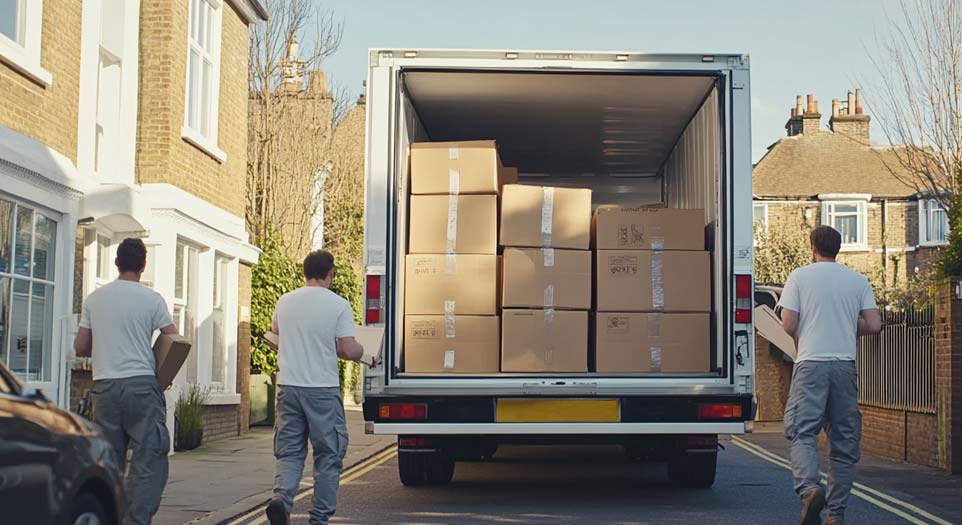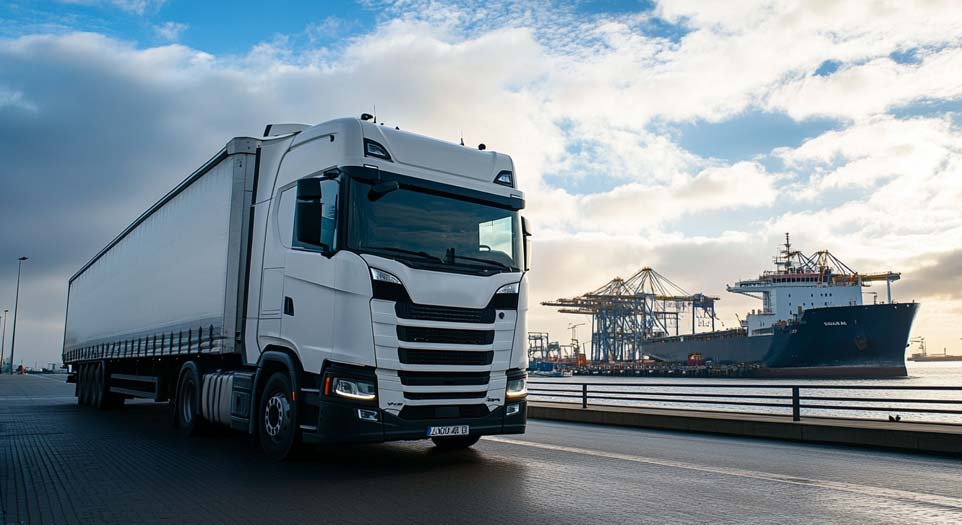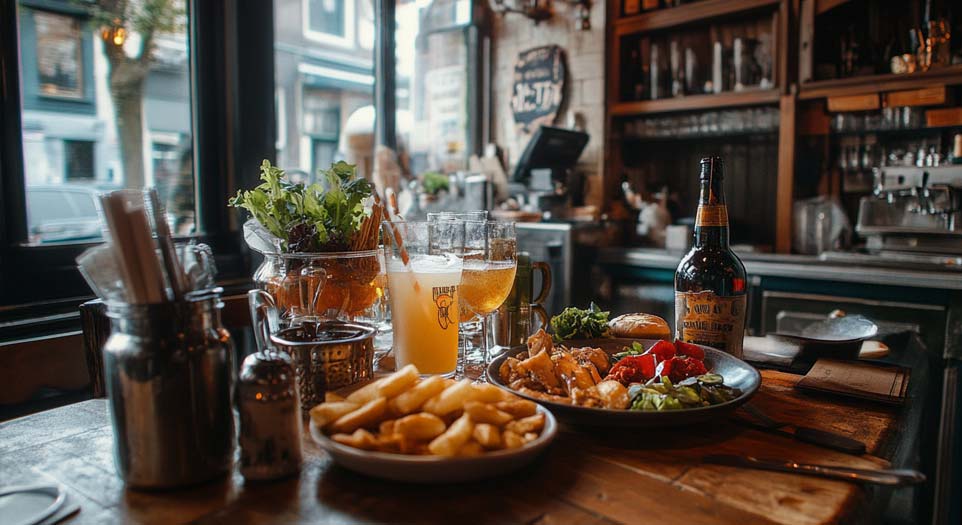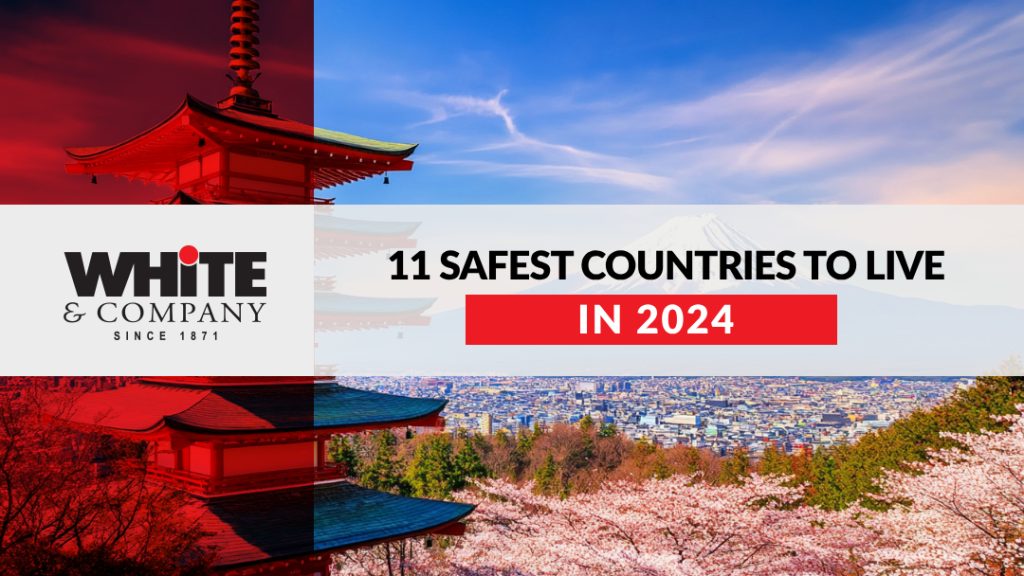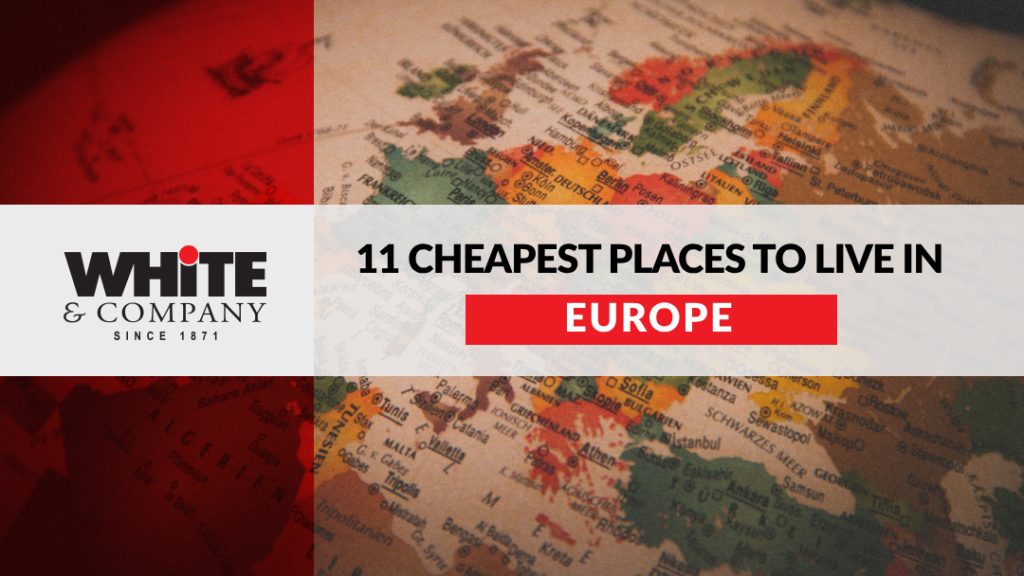Moving to Netherlands?
In partnership with a trusted network of moving hubs across The Netherlands, White & Company provides customers with an internationally renowned removals service, ensuring the timely and safe arrival of all your belongings.
Experience a seamless door-to-door service with us, as we handle every part of your move. From professionally packing your possessions at your UK residence to delivering them to your new home in The Netherlands, we take care of every detail.
Why Choose Us?
- Award winning overseas removals
- Long established company since 1871
- Local offices & storage depots located in Netherlands
- Extensive FIDI & OMNI international network
- Door-to-door service from the UK to Netherlands
- Flexible terms available to suit your needs
- Professionally trained removals team
- Full packing, storage & shipping service
- Comprehensive insurance options
- Full or part-load shipping options
How It Works
Typically, belongings destined for The Netherlands are transported either by road or sea freight. We offer flexible solutions tailored to various needs and budgets. To accommodate everyone, we provide customers with two different options when moving goods to The Netherlands:
Part Load
This option is ideal if you do not need to transport an entire household of goods. Your belongings will be transferred to The Netherlands inside a shared high-capacity truck, so you’ll only be charged for the space used. Part-loads are perfect for customers relocating to The Netherlands with fewer items, making it a suitable choice for those only needing to transport a few essentials.
Full Load
If you plan to move your entire household to The Netherlands, we recommend our full-load option. You’ll be charged for the cost of the entire trailer, allowing you to fill it as much as needed, providing maximum flexibility.
Our packing team in the UK will wrap and box your goods, which will be transported in our specialist removals trucks to our UK depot. From there, they will be sent to the port for loading onto a shipping container or transferred by road. While this option is more expensive than part-load, it offers faster shipping and delivery times.
Moving to Netherlands? Get a quick quote
Weekly Removals to Netherlands
At White and Company, we offer weekly removals services to The Netherlands from the UK. Whether you need a full-load or part-load service, we are here to provide a solution tailored to your exact requirements. Our experience, expertise, local knowledge, and specialist fleet of removals trucks make us the top choice for moving to The Netherlands.
With depots located in both the UK and The Netherlands, we offer fully containerised storage facilities in modern, secure warehouses should you require them. We understand that your belongings are invaluable to you, which is why we handle every item, big or small, with the utmost care and attention.
How Long Do Removals to Netherlands Take?
The average time for removals to The Netherlands from the UK will depend on whether you have chosen a full-load or part-load service.
Since part-load services involve shared consignments, it may take longer for all your items to arrive. However, transit times are typically between 7-14 days.
What Happens Once My Goods Arrive?
Your assigned account manager will send all paperwork to our team in The Netherlands. Once your goods arrive, they will forward the necessary forms to you and assist with customs clearance. After your belongings have cleared customs, you will be contacted to arrange a convenient delivery time if it hasn’t already been agreed upon.
As with any overseas move, there can sometimes be misunderstandings due to language or cultural differences. Our local experts are on hand to help with any customs or bureaucracy that may be confusing. Moving to The Netherlands can be a stressful process, but you can rest assured that we will always be there to support you throughout your move.
Still Have Questions?
Call us today on 01489 858367 and speak to one of our helpful European removals team about your move to Netherlands.

Recognition
White & Company are founding members of the British Association of Removers – the voice of the UK removals industry.
As members, we are responsible for meeting the highest sets of standards as well as listening to our customers on how to continually improve our service.
We are also affiliate members of the FIDI & OMNI international relocation network and have industry partners all over the world.
Insurance for Removals to Netherlands
Despite our best efforts, items can get damaged, move in transit, or go missing from time to time, all of which are outside of our control.
Our team of professional movers always try to minimise such problems during the move and we offer limited liability insurance as is set out in our terms and conditions for BAR members.
However, it is highly recommended that you consider our Marine insurance when shipping a large consignment of items overseas. We recommend you protect your possessions while in transit and storage with our ‘All Risk’ Marine Standard Liability cover.
Marine insurance cover is offered to you on receipt of a completed ‘Overseas Valuation Form’. Such insurance cover is fully comprehensive and ‘All Risk’, and is based on the total value declared by you on your application.
Preparing for Your Move
The Netherlands has become a popular choice for British expats looking to start anew. With its vibrant culture, extensive cycling paths, and a land area that provides ample space for diverse lifestyles, it’s no wonder that many Brits choose to relocate here.
Over 400,000 British expats now call the Netherlands home, with many settling in bustling cities like Amsterdam, Utrecht, and The Hague. English is widely spoken, especially in urban areas, making it easier to communicate; however, learning Dutch is highly beneficial for fully integrating into local life and understanding the nuances of the culture, laws, and job market.
While the Netherlands is just a short distance away, adjusting to a new country with different customs and social norms can present its challenges. This is where we come in to ease your transition.
As you prepare for your move to the Netherlands, packing and logistics may seem daunting. Fortunately, our experienced international removals team specializes in making your relocation as smooth as possible.
Don’t hesitate to contact us with any questions or concerns. We’re here to support you every step of the way!
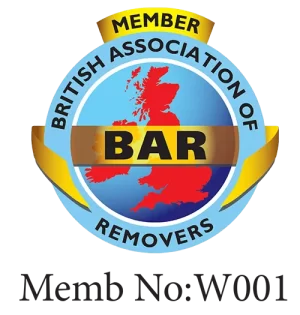



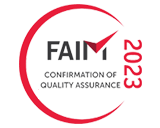
Moving home? Get a quick quote
Helpful Articles
Frequently Asked Questions
Yes, but the rules have changed since Brexit. UK nationals are now considered “third-country nationals” and require a specific residence permit. Options include:
• Highly skilled migrant: For professionals with a job offer from an approved Dutch company.
• Family reunification: If you have a family member or partner living in the Netherlands since before 2021.
• Intra Corporate Transferee (ICT): For employees transferring to a Dutch branch within the same company.
• European Blue Card: For highly qualified workers with an EU work contract.
• Self-employed and startups: Entrepreneurs can apply if their business benefits the Dutch economy.
• Research permits: Available for researchers at approved institutions.
Each permit has its own criteria, so it’s best to seek advice based on your personal circumstances.
The amount varies based on your lifestyle and location. On average, a single person needs around €2,000 per month, with costs being higher in cities like Amsterdam. Additionally, if applying for a residence permit, the IND requires proof of sufficient income, usually equal to or above the necessary threshold, including holiday allowance. You’ll also need to account for costs related to visas, permits, and housing.
No, the Netherlands isn’t expected to change the 90-day Schengen rule, which limits non-EU citizens to a 90-day stay within a 180-day period. However, starting February 2024, visa-exempt nationals with expired or canceled residence permits can stay for 90 days without leaving the country first. Passport stamps for entry and exit will still be required until November 2024. For longer stays, a visa is required.
Yes, Brits can retire to the Netherlands, but you’ll need to meet certain requirements. You must apply for a residence permit through the Dutch Immigration and Naturalisation Service (IND) and a long-stay visa (MVV) through the Dutch Embassy. Additionally, notify UK government offices about your move for benefits, pensions, and taxes. You may still need to pay UK taxes depending on your residency status. The Netherlands offers a high standard of living, excellent healthcare, and great work-life balance, making it a popular retirement destination.
The Netherlands is generally about 2% cheaper to live in than the UK, but costs can vary by city and family size.
• Average Salaries: Typically lower than in the UK.
• Rents and Utilities: Slightly cheaper than in the UK.
• City Variations: Amsterdam is the most expensive city.
• Family Costs: Monthly living expenses range from €3,000 to €5,000.
• Quality of Life: In 2023, the Netherlands ranked highest in global quality of life.
You can bring your pet to the Netherlands, but certain requirements must be met:
• Identification: The pet must have an ID chip.
• Vaccination: A rabies vaccination is required, recorded in the pet passport.
• Age Requirement: Pets must be at least 15 weeks old.
• Timing: The ID chip must be implanted before or on the same day as the rabies vaccination, and there’s a 21-day waiting period after the vaccination before travel.
• Type of Animal: Only companion animals are allowed, and the journey must be non-commercial.
• Customs Reporting: Upon arrival, report your pet to Customs, where they will check the chip, health certificate, and other documents.
Yes, you must pay taxes when living in the Netherlands, but the UK has a double taxation agreement with the Netherlands, preventing you from being taxed on the same income in both countries.
• Tax Advice: Consult the relevant tax authority for questions about double taxation relief and seek professional advice for paying taxes in the Netherlands.
• Social Security Contributions: In the Netherlands, National Insurance-type contributions are known as social security contributions (SSC). If you work in the Netherlands, you and your employer may need to pay these contributions, even if you work for a UK-based company. SSCs provide access to certain benefits, including healthcare.
Popular Places to Live in netherlands
- Almere
- Amersfoort
- Amsterdam
- Apeldoorn
- Arnhem
- Breda
- Delft
- Dordrecht
- Eindhoven
- Enschede
- Groningen
- Haarlem
- Leiden
- Maastricht
- Nijmegen
- Rotterdam
- The Hague (Den Haag)
- Tilburg
- Utrecht
- Zaanstad
- Zwolle





